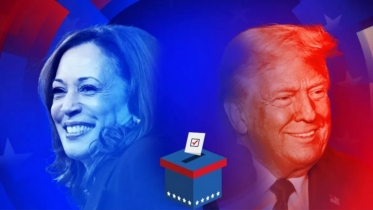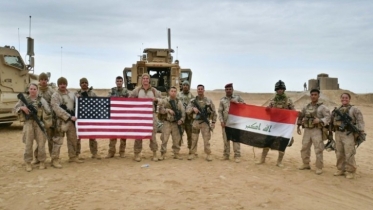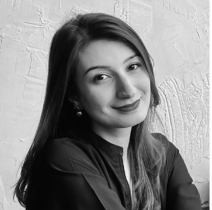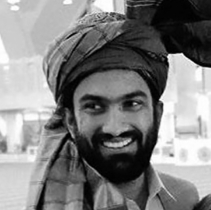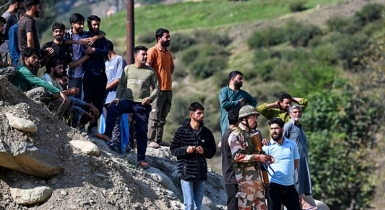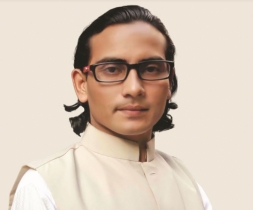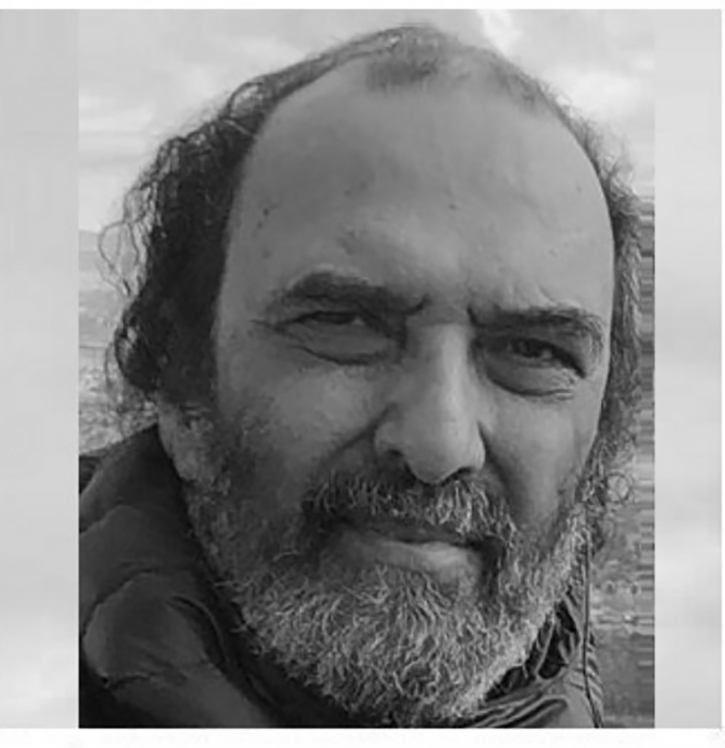
The CNN reporter gave a victory cry for his adventures in an active warzone. The headlines said it all. He had travelled with the Israeli air fleet to watch and ‘cover’ firsthand the bombing of a Yemeni port.
The Houthis were apparently using the facility to import stuff to target the Zionist state. The report carried images of dense smoke billowing from the target just blasted. Bravo! But what then happened to the amazing reporting heroics when it came to describing the smoke billowing in Israel, possibly from an airbase?
Where did the avid reporter hide his zeal when he returned to his hosts? Was there a single image of even a barren desolate ground, leave alone a military facility, dented by one or more of the missiles Iran had fired at his hosts? Not the journalist’s fault if he didn’t because, given Israel’s extensive censorship, he couldn’t.
That’s the weak link (or an asset depending on one’s point of view) about embedded journalism. It’s how we have weaponised the media practically in every combat zone, whether it’s an election being advertised in Kashmir or a massacre being ‘normalised’ in occupied Palestine. That’s how we feed one-sided stories, like the ones that led to the invasion of Iraq over false accusations vented by a complicit media.
But the perils of embedded journalism are old and were on display in the Vietnam War even as they peaked in the assault on Iraq and the pillage of Afghanistan. I had friends in the Western media in Dubai who were headed to Peshawar in the 1980s, to “do the Mooj”, once their endearing term for the US-backed Afghan mujahideen. Peshawar became a duty station replete with creature comforts, particularly exotic food and drinks stowed away in suitcases from Spinney’s and African & Eastern stores in the Gulf sheikhdom.
Fortunately, the world also produces a Julian Assange, a Mordechai Vanunu or a Seymour Hersh, to reboot the endearing idea of honest journalism. “I was never invited to the White House, never wanted to be,” Hersh would say. Such men and women rekindle one’s faith in the media to explore the truth, a commodity that becomes the first casualty in a war. It was Hersh who breached the smokescreen of falsehoods in Vietnam with his exposé of the My Lai massacre orchestrated by a young American military officer.
Hersh was a rookie when he broke the news from Vietnam, a story that greatly led to the end of the war which had devastated both sides. It was rewarding to read Hersh’s piece on Hassan Nasrallah last week, not least because the American journalist happens to be Jewish.
It was rewarding to read Seymour Hersh’s piece on Hassan Nasrallah, not least because the American journalist happens to be Jewish.
“I must confess that I liked Hassan Nasrallah,” Hersh wrote, drawing from his previous articles on the Middle East. Hersh described his long meetings with Nasrallah in the winter of 2003. “It was a few months after the US invasion of Iraq, a response George W. Bush and Dick Cheney had decided on two years earlier, in the aftermath of 9/11, even though Iraq was led by the secular Saddam Hussein who had no connection to Al Qaeda.”
Hersh says he had learnt of a strange connection between former Israeli prime minister Ehud Barak, who during his army career was a commander of the Sayeret Matkal, Israel’s most secret commando unit, and Nasrallah, the head of Hezbollah.
“The issue was a prisoner exchange between Israel and Hezbollah that took place after a lot of back and forth between Nasrallah and Barak, who was refusing to return one of the prisoners.” Nasrallah’s back-channel talks continued with Ariel Sharon, who replaced Barak as prime minister in 2001. “It was stunning news.”
Later, Nasrallah would stump Hersh again. The Americans were trying to rig the elections in Iraq to promote Sunni candidates. “Nasrallah was amused by the idiocy of Washington sending diplomats and other officials to Iraq who knew little about the country and could speak no Arabic. He told me that America had no idea how to fix elections and seemed to believe that the winning party needed a majority of 50 per cent or better. He then told me that the winning party would be Shiite and have 48.1pc of the vote.”
Pseudo pollsters, not least the Indian variety, can eat their hearts out. The election was won by the Shia Ibrahim al-Jaafari with 48.19pc of the vote. Hersh is, of course, not a supporter of Hezbollah or Hamas, nor of Israeli atrocities in Gaza. He is a straightforward journalist of the kind that riles nation-states that get in his crosshairs, not least his own, the United States.
Hersh may not be an avid critic of Israel per se, but a whole corpus of Jewish students, academics and public intellectuals has arisen to slam Zionism. They have been campaigning on university campuses against Benjamin Netanyahu’s murder and destruction of Arab civilians with US support and weaponry.
While the global media barring exceptions has ‘normalised’ Israel’s deadly bombings as ‘air campaigns’, a good number of analysts are conflating Jews with Zionists. This confusion exists for other religions as well. For example, Hinduism is often conflated with the right-wing nationalist ideology of Hindutva. Dalit ideologues like B.R. Ambedkar, though, had serious issues with Hinduism too. In this seeming contrariness, Jewish Iranians are mourning the death of Nasrallah, an opponent of Zionism.
However, we happen to be living in an era of intense propaganda. And so, it’s tempting for Rabbi Pini Dunner, from the Beverly Hills Synagogue with its huge Iranian community, to claim: “Iran’s Jewish community lives in fear of persecution if they don’t align themselves with the regime’s warped views.”
If that were true, how do we explain the hostility towards Israeli occupation, which the Jewish community in the West feels so strongly? Israel’s formidable critics are led by Jewish intellectuals like Ilan Pape, Gabor Mate, Norman Finkelstein or Jeffry Sachs.
The writer is Dawn’s correspondent in Delhi.

